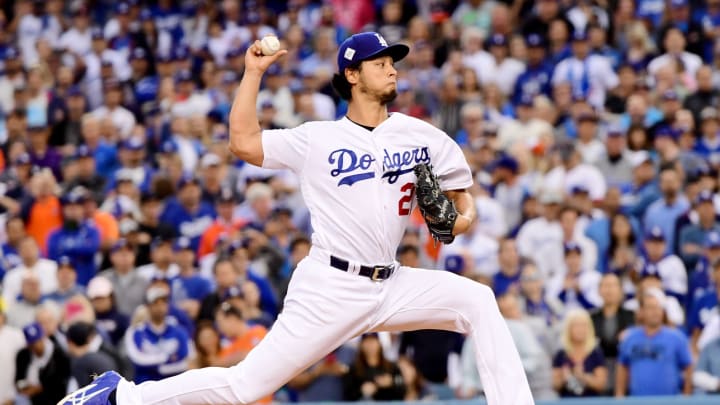Where Will Yu Darvish Sign?

Tom Verducci: He’ll have to wait until Ohtani signs, because his best landing spots are all on Ohtani’s final list: Mariners, Angels, Cubs and Rangers. Don’t rule out a return the Rangers, but the Angels, with the clock ticking before Mike Trout’s free agency, are the surprise winner.
Jay Jaffe: The Twins. If they're ever going to get serious about contending, the Twins have to find pitchers who miss bats; this is a team that has ranked 14th or 15th in the AL in K's in five of the last six years. Darvish, happens to have the highest career strikeout rate of any active starter in terms of both percentage (29.7%) or per nine (11.0). With such a young core—five players making at least $8 million next year and two of them, Joe Mauer and Brian Dozier, come off the books after 2018—the team has significant financial flexibility. The front office has a link to Darvish via GM Thad Levine, who was previously an assistant with the Rangers. They’re already aggressively pursuing the 31-year-old righty. Add Darvish to Ervin Santana and a full season of Jose Berrios and suddenly that rotation looks a lot better.
Stephanie Apstein: I could see him going back to Texas. By all accounts he loved it there, and it’s possible that they think they’re a piece or two away from contention.
Jack Dickey: Darvish did his free agency no great favors in his post-deadline Dodger stint, looking less like an ace than a No. 2 with occasionally electric stuff. His disastrous World Series may have left a bad taste in general managers’ mouths. He is nevertheless the best starter on the market, young enough (he turns 32 in August) to earn a medium-term deal. If the price is right, a Rangers reunion seems likely. If bidding goes crazy, something suggests the Angels (who tied with Baltimore for the fewest quality starts in the American League in 2017) will be involved.
Jon Tayler: The catastrophe that was Darvish in the World Series—3 1/3 innings pitched, nine runs allowed, zero strikeouts, and enough flat sliders to fill an Olympic-sized swimming pool—probably left most GMs wary of handing him $100 million. So, too, will his age (31) and the reconstructed ulnar collateral ligament in his right elbow. At least one team, though, is familiar with and fond of Darvish: his old club, the Rangers. Should Texas lose out on Ohtani, I expect them to pursue and pick up this winter’s other Japanese ace, bringing him back to the Metroplex to front a rotation in desperate need of a No. 1 starter.
Gabriel Baumgaertner: Darvish might be the last major free agent to sign. The teams that need him the most (Brewers, Twins) don't have the money he wants, and the teams that do don't really need him. In terms of raw stuff, Darvish remains one of the most talented starting pitchers in baseball. Unfortunately for him, his abysmal World Series performance didn't help the idea that he's a potential star who will never fulfill his potential. My guess is the Phillies, who have a host of promising young prospects, a lot of money, and an awful starting rotation.
Connor Grossman: Presumably the Cubs will let both Jake Arrieta and John Lackey get away this offseason, leaving an innings void that needs to be filled. Darvish appears to be a great candidate to so—two disastrous World Series starts aside. The Japanese righthander improved marginally after being traded to the Dodgers last season, putting up a better ERA (3.44), WHIP (1.148), BB/9 (2.4) and K/9 (11.1) in nine starts with LA versus his 22 starts in 2017 with Texas.
A small-market team like the Twins—who have been linked to Darvish—make for an intriguing landing spot, but the Cubs have the financial wherewithal to lure him away.
